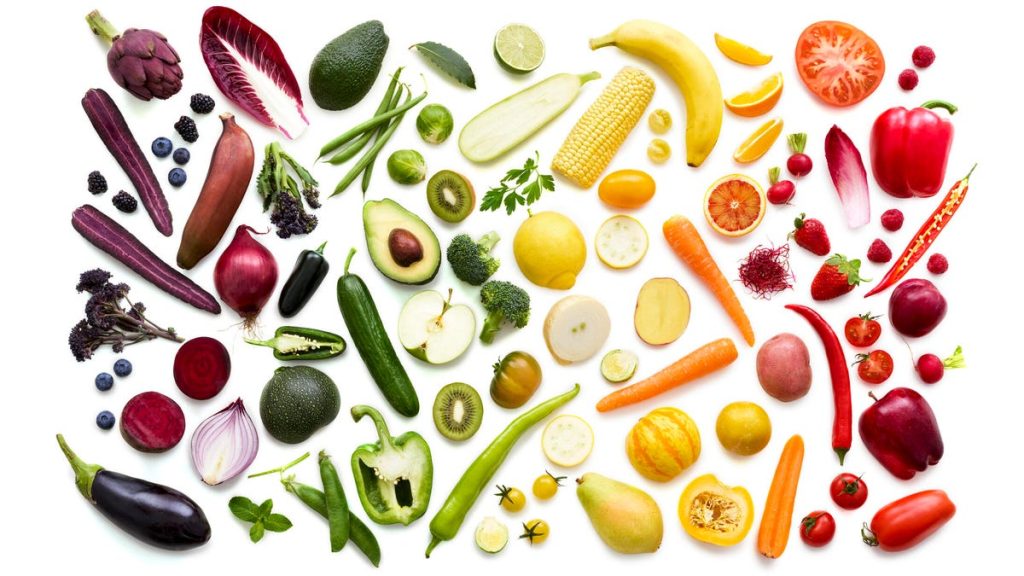Vitamins and minerals are essential micronutrients that play crucial roles in maintaining overall health and well-being. While supplements can help bridge nutritional gaps, prioritizing a balanced diet rich in whole foods is the optimal way to obtain these vital nutrients. This comprehensive guide delves into the best food sources for each vitamin and mineral, emphasizing a food-first approach to nutrition. By incorporating these nutrient-dense foods into your daily meals, you can support your body’s optimal function and reduce the reliance on supplements.
Vitamin Overview:
Vitamin A exists in two forms: preformed vitamin A (found in animal products like liver, eggs, and fish) and provitamin A (found in plant foods like carrots, sweet potatoes, and leafy greens). B vitamins, a group of eight essential nutrients, are abundant in foods like whole grains, legumes, eggs, and leafy greens. Vitamin C, crucial for immune function and tissue repair, is found in citrus fruits, berries, and cruciferous vegetables. Vitamin D, primarily obtained through sunlight exposure, is also present in fatty fish, egg yolks, and fortified foods. Vitamin E, a potent antioxidant, is found in nuts, seeds, and leafy greens. Lastly, vitamin K, essential for blood clotting, is abundant in leafy green vegetables, eggs, and certain meats.
Mineral Overview (Macrominerals):
Macrominerals, required in larger quantities, include calcium, phosphorus, magnesium, sodium, potassium, chloride, and sulfur. Calcium, crucial for bone health, is found in dairy products, leafy greens, and fortified foods. Phosphorus, supporting bone health and energy production, is primarily found in animal products. Magnesium, important for nerve and muscle function, is present in whole grains, nuts, and leafy greens. Sodium, an electrolyte vital for fluid balance, is found in many processed foods but also naturally occurs in small amounts in vegetables like artichokes and celery. Potassium, another electrolyte, supports heart health and is found in fruits, vegetables, and legumes. Chloride, working in conjunction with sodium and potassium, is readily available in table salt and various foods. Sulfur, supporting cell function and tissue structure, is found in protein-rich foods like meat, eggs, and some vegetables.
Mineral Overview (Trace Minerals):
Trace minerals, needed in smaller amounts, include iron, manganese, copper, iodine, zinc, cobalt, fluoride, and selenium. Iron, essential for blood production, is present in red meat, fortified cereals, and legumes. Manganese, a cofactor for enzymes, is found in whole grains, leafy greens, and nuts. Copper, crucial for brain development, is found in shellfish, nuts, and whole grains. Iodine, vital for thyroid function, is primarily obtained through iodized salt and seafood. Zinc, supporting immune function and wound healing, is found in oysters, red meat, and whole grains. Cobalt, a component of vitamin B12, is present in foods rich in this vitamin. Fluoride, promoting dental health, is found in fluoridated water and certain foods. Selenium, protecting cells from damage, is abundant in Brazil nuts and seafood.
Prioritizing Whole Foods:
While supplements can be helpful, especially in cases of deficiency, obtaining vitamins and minerals through a balanced diet is always preferable. Whole foods offer a synergistic blend of nutrients that work together to support optimal health. Focusing on a diverse intake of fruits, vegetables, whole grains, lean proteins, and healthy fats ensures an adequate supply of these essential micronutrients. Furthermore, whole foods provide fiber, antioxidants, and other beneficial compounds that contribute to overall well-being.
Individual Needs and Considerations:
Individual nutrient needs vary based on factors such as age, sex, activity level, and health status. Consulting with a healthcare professional or registered dietitian can help determine specific dietary requirements and identify any potential deficiencies. They can also provide guidance on appropriate supplementation if necessary. Pregnant women, older adults, and individuals with certain medical conditions may have increased needs for specific vitamins and minerals.
Building a Nutrient-Rich Diet:
Creating a balanced diet rich in vitamins and minerals involves incorporating a variety of nutrient-dense foods from each food group. Prioritize whole, unprocessed foods over refined and processed options. Make fruits and vegetables a cornerstone of your meals and snacks. Choose whole grains over refined grains. Include lean protein sources such as fish, poultry, beans, and lentils. Incorporate healthy fats from sources like nuts, seeds, avocados, and olive oil. By making conscious food choices and focusing on a diverse array of nutrient-rich whole foods, you can ensure your body receives the vitamins and minerals it needs to thrive.










